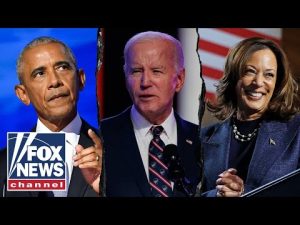The recent congressional hearings on government transparency, specifically regarding previously classified documents about the assassination of John F. Kennedy, are stirring quite a mix of reactions among the American people. It’s like opening a Pandora’s box of historical intrigue, with some folks eager to dig into every secret file and others preferring to stay blissfully unaware of governmental skeletons lurking in the closet. The divide is as broad as it is interesting, with one camp demanding full disclosure, convinced that the truth can handle a little sunshine. Meanwhile, another group, perhaps more jaded or simply cautious, hopes some stones remain unturned, believing ignorance might sometimes be bliss—especially when it comes to potential government conspiracies.
There’s an underlying sentiment of skepticism towards the government, reminiscent of an unfolding drama that never quite resolves itself. Citizens have become increasingly suspicious, a vibe that’s only reinforced when former officials make cryptic hints about the possible involvement of government entities in JFK’s assassination. Indeed, such notions make for gripping narratives and have fueled countless conspiracy theories over the decades. Yet, isn’t it curious that even now, with files set for release, the extent of redactions is still a hot topic? Because, really, what’s the point of transparency if everyone needs a decoder ring?
It seems this issue is more than just about historical files—it’s about trust, or the lack thereof. People are questioning to what extent the truth has been massaged, edited, or withheld altogether. And while some bravely demand to see those files spanning from JFK to UFOs, hoping for earth-shattering revelations, others worry about the privacy breaches and potential misinformation that may come along with such revelations. It’s almost as if the American public has entered a never-ending suspense thriller, where everyone has their theories, but the biggest mystery of all remains, will we ever know the full story?
There are also whispers about other significant figures and subjects, like Martin Luther King Jr. and even extraterrestrial encounters, that might be lurking in these shadowy archives. The notion that our understanding of pivotal historical events and figures could be altered by once-hidden truths is both fascinating and terrifying. But in a world where fake news seems to have taken a backseat to no news, maybe a little more information would be a good thing. After all, if the current administration is not guilty of past wrongdoings, why not just show us the receipts and be done with it?
While the hearings continue to probe into these secrets of yesteryears, it’s clear the American public remains divided on the sanctity and necessity of absolute transparency. Perhaps it boils down to a simple choice between knowledge and comfort. As the discussions heat up, it’s amusing to see how even a basic government record release can stir up more drama than a daytime soap opera. Whether or not full disclosure will ever be achieved remains to be seen. Until then, it seems, curiosity will continue to prod at the heart of the American government, and conspiracy theorists will keep their tinfoil hats close at hand, ready for the next chapter in this long, riveting saga.







